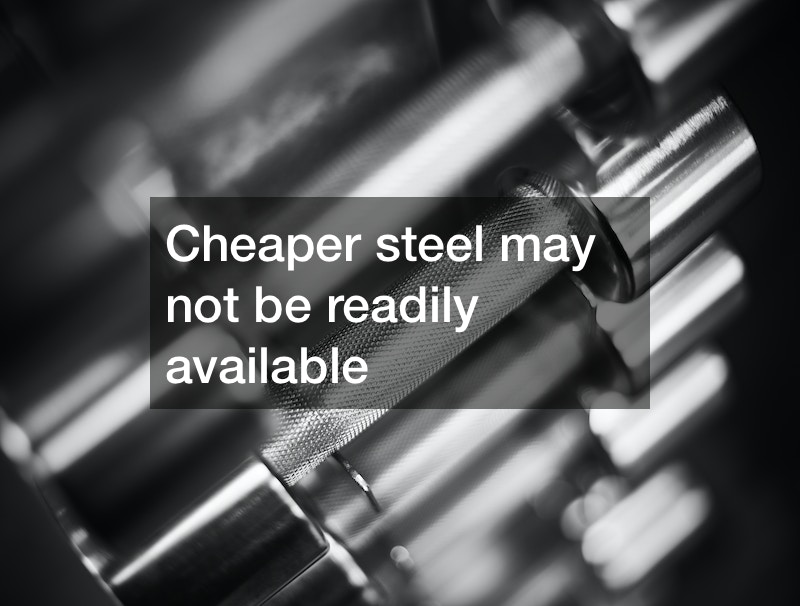
Did you think that the cheapest steel is the best material for your project? Remember that cost is only one factor to consider when purchasing from a steel distributor. The following can also impact steel quality and performance:
- Quality: Steel with a lower cost often has lower quality and may not meet industry standards or specifications. This can result in weaker and less durable structures.
- Composition: Cheaper steel may contain impurities or have an inconsistent composition, which can impact its strength and performance. This can result in structural issues and can compromise the safety of the end product.
- Processing: The processing method used to produce steel can impact its quality. Cheaper steel may have been produced using lower-quality equipment or may not have undergone proper heat treatment, which can result in weaker or less consistent materials.
- Corrosion resistance: Steel that’s not properly treated or coated may be more susceptible to corrosion, which can impact its durability and performance. Cheaper steel may not have undergone proper treatment or coating, making it more susceptible to corrosion over time.
- Availability: Cheaper steel may not be readily available, causing delays in production and potentially increasing costs in the long run.
While the cheapest you can buy from steel distributors may seem like the best option in the short term, it can result in long-term consequences that impact the quality and performance of the end product.
.
